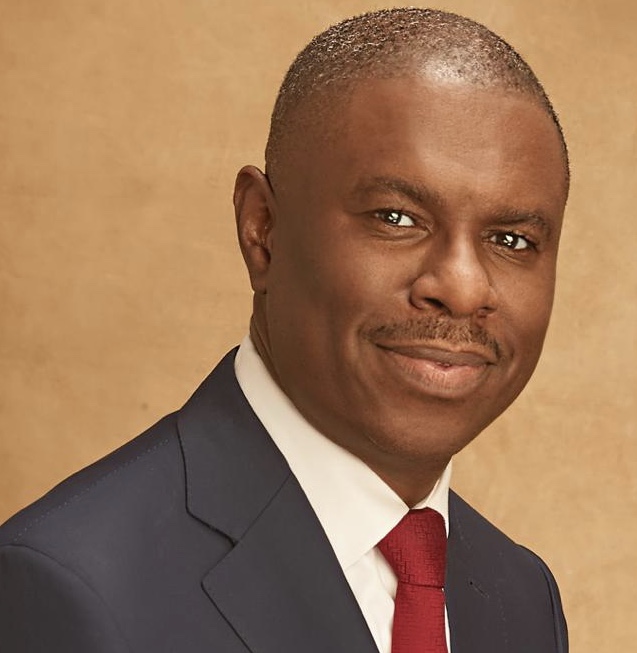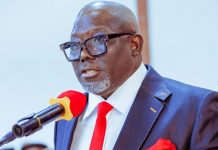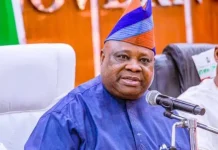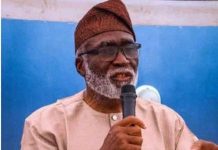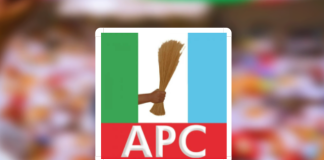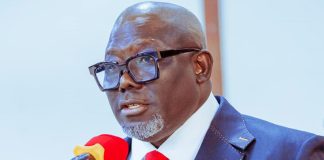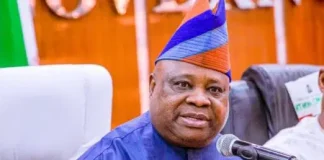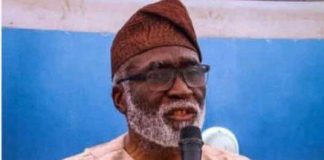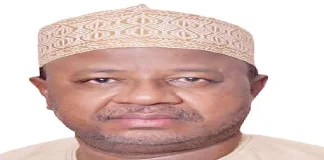🌿 Ruzu Non-Alcoholic Herbal Bitters
Ruzu Non-Alcoholic Herbal Bitters is a natural health supplement specially formulated to:
- ✅ Promote general wellness
- ✅ Detoxify the body
- ✅ Support the treatment of various ailments
Made from a powerful blend of 100% organic and medicinal herbs, Ruzu is completely alcohol-free, making it ideal for:
- 👪 All age groups
- 🌱 Health-conscious individuals
- 🌿 Anyone seeking non-alcoholic herbal remedies
Whether you're looking to boost your vitality, cleanse your system, or support healing the natural way, Ruzu Bitters offers a trusted herbal solution.
In democratic society, trust is the currency of the day. Institutions may retain their names and seals when it evaporates, but their credibility is diminished. A social contract under stress is described by the new Chatham House/NBS findings, which go beyond simply providing another set of depressing statistics. The police are “greatly distrusted” by nearly half of Nigerians. A third or so of people have a strong mistrust of the federal government and the president. The judges, state officials, and municipal governments all receive low marks. Beneath these data points is a telling paradox: a majority still feel awful when people are taken advantage of, even though they think that power is more important in their communities than honesty. Stated differently, Nigerians no longer lack a moral compass; rather, they no longer believe that honesty is rewarded.
A nation is held together by the silent structure of trust. Not only does it damage people’s reputations when it erodes, as it did in Nigeria, but it also destroys the institutions that are supposed to serve, protect, and stabilize society. The police turn into a source of anxiety rather than safety, courts turn into places of suspicion rather than justice, and ministries become echo chambers rather than policymaking machines. This column has previously issued warnings about this trend in articles such as “Dearth of Integrity in Public Life” (November 2023), “Greed, Ethics, and Public Service in Nigeria” (January 2024), “Trust and Economic Recovery” (November 2024), “Nigeria Decides 2023: Campaign Promises and the Issue of Trust” (January 2023), and “Accountability Deficit and the Transparency Question” (September 2023). The main takeaway is straightforward: government cannot operate well without trust.
There are serious ramifications for the presidency from this. In any constitutional democracy, the presidency is more than just a position; it is a representation of sovereignty and the point at which the people believe that the government has legitimate power. The ease with which the government can ensure compliance, enforce the law, and uphold order also diminishes as confidence in that sign declines. Every change encounters resistance, distrust, and delay; the gap between intention and implementation widens; and the cost of governance increases. The informal consent that underpins power becomes brittle, even though a president may still hold formal authority. Not just popularity ratings are at risk, but the state’s ability to act in the public good without constant opposition or skepticism is as well. People start living outside of the state through parallel services, private security, and unofficial payments if the center is unable to provide a credible case for justice and outcomes.
Even more concerning is the report’s finding that there is almost universal agreement that economic and political power now take precedence above integrity and rights protected by the constitution. Power overrides principle, and democracy turns into performance. Expectations are lowered by the public, who view corruption as inevitable and impunity as the norm. As people turn to private coping mechanisms like informal economies, ethnic solidarity, and transactional shortcuts because official institutions frequently come across as aloof, capricious, or predatory, this weakens societal cohesiveness over time.
The cost is also felt by the economy. In addition to being a moral evil, corruption is a daily compounding efficiency tax. It takes funds away from schools, hospitals, and roadways. It increases the expense of doing business and erodes the rule of law. Nigeria’s headline Comparing GDP to the largest economies in Africa is tempting, but GDP per capita provides a distinct perspective on household prosperity. It is no accident that persistent poverty levels are seen in a nation that struggles with service delivery gaps. The public tends to become disengaged when budgets are presented without demonstrable results. They have a legitimate concern when asked to increase the tax base: where does the money go? Tax and trust management are like twins; you can’t raise one while ignoring the other.
It took some time for the trust deficit to manifest. Over the course of a quarter century, Nigerians have seen anti-corruption programs whose headlines frequently outpaced their actual outcomes. The public interest has too often been subordinated to party loyalty, impartial justice has too often been supplanted by selective enforcement, and institutional incentives have rewarded surviving in a dysfunctional system rather than bringing about transformation. Reform fatigue results from individuals hearing the proper words but learning to hold off on believing them until they are proven. Silently, every broken promise lowers the “cost of corruption”—the belief that wrongdoing is common, lucrative, and never punished—while increasing the “cost of honesty”—the possibility that following the rules makes one poorer, slower, and excluded.
Director General of the National Orientation Agency, Mallam Lanre Issa-Onilu
Official claims that corruption has been eradicated, but independent statistics and everyday experiences show otherwise, widens the gap between assertions and reality. Instead of claiming that current adversity would result in future advantages, leaders foster public trust by proving the link between income and results and by seeking outside confirmation. In times of adversity, humility is the prerequisite for teamwork and is not a sign of a weak leader. Honest statements like “we are falling short here,” “here is what we will do by these dates,” and “here is how you can check” gain more credibility than valiant assertions that don’t align with reality.
However, the work at Chatham House also reveals a subtle strength: civic preparedness. Communities are willing to monitor public spending on development projects, according to nearly half of the respondents. This is serious. Replicable, citizen-centered institutions that make misbehavior more difficult, expensive, and dangerous are what nations who have successfully eradicated corruption have done so rather than relying solely on the desire of their elite. Nigeria has the chance to move beyond encouragement to design: give communities the authority to monitor projects, disclose contracts, and establish avenues for complaints to lead to action. What does a credible reset entail?
The president’s prompt recognition that confidence is low and that restoring it is a national priority. This has to do with alignment, not blame. A brief action plan with deadlines, owners, and visible milestones should be followed. In law enforcement, this could entail putting in place independent complaint procedures that make their findings public, installing body cameras in high-risk locations, and releasing yearly integrity reports that point out patterns and provide information on corrective measures. All MDAs should be required to use open contracting in procurement, and significant contracts should not be awarded unless the beneficial ownership data is comprehensive and accessible to the public. When it comes to whistleblowing, go beyond catchphrases and implement strong safeguards, ensure anonymity, and show that significant tips result in quantifiable enforcement.
Policing ought to be equitable and quantifiable. It is not policy texts that establish trust in the police, but rather the roadside. Establish an impartial complaints system that has the authority to look into the matter, publish the results, and suggest sanctions, then carry them out. After major incidents, deploy body-worn cameras in strategic locations with explicit guidelines for their use, retention, and public release. An annual integrity report that documents stop-and-search statistics by location, disciplinary actions taken, and complaints by kind and outcome should be published. The science that demonstrates that people comply with procedures that are courteous and transparent, even when the results are unfavorable, is called procedural justice. Combine this with incentives and protections for officers to make effective policing safer and more lucrative than rent-seeking.
To cut down on wait times, digitize justice. Delays in justice translate into a lack of trust. Effective case tracking is essential and must clearly display, in plain language, the quantity of cases filed, the typical processing time, and the results of those cases. For crucial phases, like as filing, arraignment, evidence disclosure, and trial scheduling, create service-levy agreements and submit performance reports on a quarterly basis. Prioritize cases involving violent crimes and corruption by designating specialized judges and establishing stringent deadlines.
Understand that proof is the foundation of the social contract. The goal of the government is to increase the revenue base. That won’t occur on a large scale until residents see their taxes being used to fund infrastructure and services in their communities. Make a monthly “Money to Services” ledger that documents, project by project, how money is converted into results, such as schools being delivered, water systems operating, hospital wards being furnished, and roads being usable throughout the wet season.
It goes without saying that reform is a habit rather than a news release or propaganda. It needs measurements in order to be credible. Release a brief national scorecard every quarter that shows the percentage of people that “strongly trust” the federal government, the police, and the president (along with a goal to increase this by a specific number of percentage points in 12 to 18 months).
This will not be an easy process. The people who profit from the current equilibrium will oppose it. People who have heard numerous promises will grow weary of reform. Disinformation tactics aimed at obscuring victories and exaggerating defeats will be launched. There will also be economic shocks that will be tested. Protecting reform advocates, communicating with rhythm and candor, and coordinating rapid wins—particularly in frontline services—are all necessary to mitigate these dangers.
After all, trust makes sense. People trust because systems act in a predictable and equitable manner, not because they are commanded to. It is evident from Chatham House’s values paradox that Nigerians still have a strong desire for justice. They no longer have the belief that integrity is cheap. The hard work that lies ahead is rebuilding that expectation. It implies that being honest will cost less and being crooked would cost more. It entails switching from integrity as theater to anti-corruption as infrastructure. It also calls for a different approach than leadership, one that views legitimacy as a resource that is renewed every day by behavior rather than as a gift of power.
Trust will follow if we can make taxes clearly become services, make justice quantifiably faster and more equitable, and make injustice consistently costly—not as sentiment, but as common sense. A state that operates in a way that citizens can observe, test, and trust is the way to overcome cynicism. And when trust does return, it will do so as something more resilient than hope—confidence gained through organizations that function in the everyday rhythm of Nigerian life without causing drama. Integrity must be less expensive than impunity and service more rewarding than cynicism in order for our institutions to serve the public interest rather than as strongholds of power.

